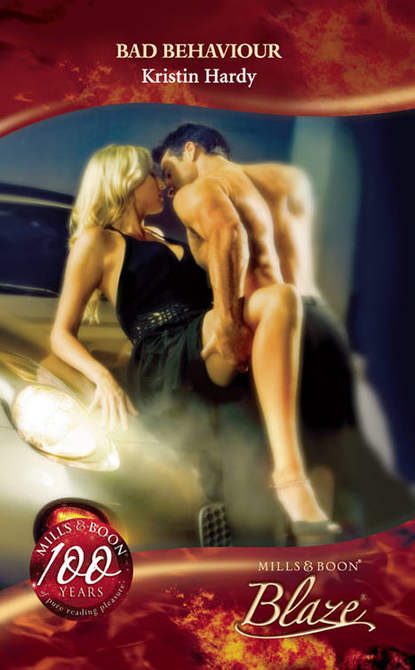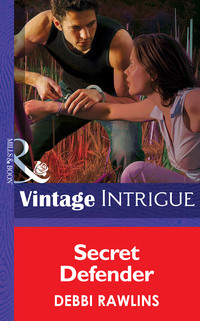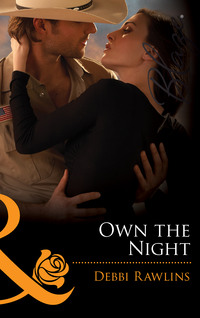
Полная версия
Once a Rebel
Normally when he dreamt of his grandmother, he felt comforted. Not tonight. The edginess that crawled over his nerve endings wouldn’t cease. He closed his eyes again, trying desperately to recall more of the dream. He stretched his neck from side to side, trying to ease the tension, as if he could shake loose a memory.
They’d been sitting at their cook fire on the reservation, that much he remembered. Except they were outside and the sun was beginning to set. His age was fuzzy, and Masi looked like she always had—slightly stooped, leathery skin, old before her time. An eagle soared overhead and she’d pointed skyward…and then…
Cord exhaled sharply, and opened his eyes. That’s all he could remember. Frustrated, he pushed up from the bed. The wavering light from the pool caught on the outline of a dark lump sitting between the armoire and the closet. He strained to make out what it was. The black leather duffel.
That’s all it took. Memories of the dream washed over him. The eagle turning into a plane, golden sunlight gilding by the distant hills, the Black Hills, just like in the travel agency brochures. He knew suddenly, deep down in his gut. Masi had plainly told him to go to Deadwood.
TOO BAD, CORD THOUGHT as he stopped the car in front of the Deadwood property. The house was huge, two and a half, maybe three stories, with a big porch facing the west where you could sit and watch the sun go down. The main door was off center, a peculiarity he kind of liked. He wondered which part of the house they were tearing down.
The new owner, who was a developer, had had it with both freelance detectives and reporters, according to his secretary. She’d stopped short of giving Cord a key but she made sure he understood the place was currently deserted and, with a flashing dimple, subtly let him know that the kitchen door was likely to be unlocked. He’d promised the cute little blonde a quiet dinner.
Why not? How much time would it take to find out this case was a dead end? After waiting in crowded airports and then enduring two choppy flights, the whimsy of last night’s dream had worn thin. So had his patience. The blonde would prove a nice distraction tonight. What was her name…? Sue—slightly younger and shorter than he liked them, but she was eager.
He probed his aching shoulder and took a deep breath against the cramping pain. Flying coach was a bitch for someone as tall and broad as he was, but he had to make the cash Leslie had given him last as long as possible. He had every intention of paying her back the amount he’d siphoned off for rent, and whatever he spent on dinner tonight, but the rest was gonna be on her nickel for sending him on this fool’s errand.
After following the side of the house, he spied the kitchen through a bare bay window. With the toe of his black snakeskin boots, he carefully picked his way through some debris to the stoop.
Just like Sue had said, the door was unlocked. Good, they couldn’t get him on breaking, only entering. He smiled wryly, and unnecessarily touched the butt of his gun through his sport jacket. He didn’t need the piece. Transporting it had been more trouble than it was worth. But who knew? Maybe he could finish his business here and still pick up Mad Dog’s trail. General consensus was that the guy had left L.A. and headed east. Cord only needed to swing south to cross his path.
As soon as Cord stepped over the threshold, a cloud of particle-board dust assailed his nostrils. Coughing, he waved a hand to clear the air. The kitchen had been torn apart, the appliances ripped from the wall, half of it already gone, allowing him to see into what must have been a dining room. Only the chandelier and ripped wallpaper remained.
Shaking his head, he walked through the room into another and faced much of the same. No furniture, just big empty spaces, barely contained by walls left with gaping holes and framed by dull peeling paint. The scuffed wood floors didn’t look too bad, there were a few warped floorboards, but that was pretty much it. He shouldn’t be wasting his time here.
Then he noticed the stairs guided by a carved dark cherry banister that ended in two ornate scrolls, and wondered why the workmen hadn’t protected the wood. Surely they would try to salvage this piece. Although his tastes veered to the contemporary end of the spectrum, even he could appreciate the fine craftsmanship.
Without thinking, he ran his palm over the smooth wood and an odd sensation of familiarity washed over him. It called to mind the many times as a kid that he’d watched the elders carve figures of animals to be sold at souvenir shops. Samuel Wauneka had offered to teach him the dying art, and Cord had balked. He hadn’t thought about that in a long time, either.
Cord started up toward the landing, briefly considering if it was worth the risk of checking the second floor.
Not in the hope of finding a lead, but out of simple curiosity. Before he’d consciously made a decision, he tested the stability of the first step. Seemed solid enough for his weight. The workers had to get up there somehow, so he wasn’t too concerned.
The stairs turned out to be surprisingly solid, but not so the internal walls upstairs. On the left side of the house, half of them had already been demolished and lay in crumbled heaps of wood and plaster. Cord poked his head into each room, but there was nothing to see. When he came to another set of narrow stairs, he decided to leave.
He stiffened at the sudden feel of pressure against his lower back, as if someone were pushing him. He jerked around, but no one was there. Feeling foolish, he made a complete circle, anyway. He muttered a curse, and then eyed the stairway. Hell, he’d come this far.
The planks of wood creaked under his weight, although he felt confident that they’d hold him. When he got to the top, the door was stuck, but a firm shove with his good shoulder forced it open. Like the stairs, the entryway was narrow and he had to angle his body sideways to gain access. Ducking his head, he stepped into the small attic.
Enough light filtered in through a cloudy windowpane that he was able to find a string hanging from a bare bulb, which quickly lit the room. Unlike the rest of the house, the contents appeared to have been untouched. In the corner was a dress form next to a bolt of lacy fabric leaning against the wall. Across the room stood a full-length mirror, and behind it an old oak dresser with two missing knobs.
Dust coated everything as if untouched by human hands for some time, which didn’t make sense since the rest of the house had been cleared of furniture. He thought about opening the small window but there was no use staying in the stuffy room. Nothing of interest here…
He saw the chest.
Sitting by itself on the far side of the room, it appeared free of dust. Frowning, he moved closer, and saw that it was old but in good shape. He crouched down, hoping he wouldn’t have to break the lock, and discovered it unlatched. He lifted the lid and found a pair of vintage toys, hand-carved from the looks of the train pieces. There was a book, too, which he set aside, and a photo album, which he balanced on his knee and flipped open. He was curious because the album didn’t seem as worn as the other things in the attic, though the photos encased in brittle plastic sheets were old and faded, mostly featuring landscapes. When he came to the one of the blonde, he angled the photo toward the light, peering closer.
Had to be a Winslow. The woman was a dead ringer for one of the missing sisters, except she wore an old-fashioned dress and her hair was longer and pinned up. His gaze skimmed the next picture and his heart thudded. The same blond woman stood with her arm linked with another woman.
Who looked exactly like the other missing sister.
He dropped the album as if it had scorched him. The photos fell free of the plastic sleeve. He picked them up. On the back was written 1877. Was this some kind of joke? Puzzled, he tucked the photos into his breast pocket just as a flash of light came from the chest. He blinked and ducked his head to find the source. All he saw was an antique camera. He picked up the big, bulky contraption, which couldn’t possibly work….
Beneath his feet the floor shook violently. Shit. Nothing terrified him like an earthquake. He’d been through two of them in L.A. Hot white light flashed in his face, blinding him. With an unholy force, the earth shook again, and he flung the camera, panic clogging his throat. Trying to focus, he dropped to his knees. He had to get out. Find the door. He flailed blindly as the floor rumbled and threatened to swallow him whole.
The violence stopped as suddenly as it had begun. He stayed frozen, waiting for the aftershock. Nothing happened as his vision slowly cleared. He should have felt relief. Except he was no longer in the attic.
3
CORD SQUINTED UP at the clear blue sky. A pair of hawks circled overhead. Clouds hovered close to hills blanketed with fallen yellow and orange leaves.
He blinked blearily. Nothing changed.
He spun around. The Winslow house. It was gone. There were no buildings, only an endless dirt road and skeletal trees, their limbs forking the sky.
How was this possible? He’d been in the attic only a moment ago….
Sniffing the air, he knew he wasn’t imagining the aroma of smoked meat mingled with charred hickory. That meant he was still alive, right? He looked down at his jeans and the tops of his cowboy boots, and then touched his gun through his cashmere sport jacket. The .38 caliber sat snugly in his shoulder holster.
He suddenly remembered the earthquake. The flash. The blinding white light. A gunshot? He opened his jacket and checked his blue striped cotton shirt. No blood. Only nervous sweat coated his skin. Hell. That didn’t mean he wasn’t dead. What other reason was there for him unexpectedly standing in the middle of nowhere?
Shading his eyes, he strained to see down both sides of the dirt road. He saw nothing, though the scent of the roasting meat seemed to have grown stronger so he had to be close to some sort of civilization. Like icy fingers squeezing the lifeblood from him, a chill gripped him, and he turned up his blazer collar as he started in the direction of the tantalizing aroma. That was another thing—if he were dead, the smell wouldn’t be so appealing.
He swallowed hard, but had to work at gathering enough saliva in his parched mouth. The dust he kicked up as he trudged on didn’t help, so he crooked his arm over his mouth and nose. After about a quarter of a mile, he stopped and listened. He thought he heard voices. Children laughing? At least he was going in the right direction.
The thought had barely flitted through his mind when he saw the eagle. As if beckoning him, the majestic bird dipped lower in the sky before soaring back up and glided just ahead of Cord. A sure sign that he was going in the right direction.
MAGGIE DAWSON pressed a hand to her nervous belly and then gathered her long skirt in one hand and carefully climbed down off the wagon. She prayed with all her heart that today was the day she’d hear from her sister. Mary had never been the fastest letter writer but once she learned of Maggie’s predicament, surely she’d responded hastily.
“Afternoon, Maggie, fine fall day we’re having.”
Maggie forced a polite smile on her face as she turned toward Mrs. Weaver’s voice. “Yes, nice and cool. Good baking weather. I have a mind to bake a couple of apple pies for Pa. You know how he does so love his sweets.”
Mrs. Weaver stopped in the middle of the boardwalk and tilted her narrow face to the side. “Come to think of it, I haven’t seen him in a good long while. How’s he coming along?”
Gritting her teeth, Maggie turned back to tethering her horse so Mrs. Weaver wouldn’t see the bright red spots that heated Maggie’s cheeks. When was she going to learn? Mrs. Weaver would have kept on walking if Maggie hadn’t opened her big mouth and rambled, and then she wouldn’t have to tell a big fat lie. Which plainly she was very bad at doing, partly in thanks to her cursed fair skin and disgusting red hair.
“He’s still feeling poorly. That’s why I’ve been the one coming to town lately.” Maggie cinched the reins and forced herself to face Mrs. Weaver.
“Well, honey, I wouldn’t be making him apple pie if I were you. He needs a good brothy soup. Just this morning I told Harold we need to slaughter one of the chickens. I could bring some—”
“Oh, thank you, anyway, Mrs. Weaver. But I just made a pot myself this morning. Pa’s probably eating some of it right now. He—” Shut up, Maggie, she told herself sternly and stepped up onto the boardwalk. She’d been lying and evading so much lately she should be better at it by now. “Say hello to Mr. Weaver for me,” Maggie said as she rudely backed away from the older woman’s disapproving face.
Her stomach in a twisted knot, Maggie entered Arnold’s general store and went straight to the threads. She would have much rather run straight to the corner where Mr. Carlson sat at a wobbly scarred oak table and sorted and dispensed the mail, but she never wanted to appear too eager and always first bought a few yards of fabric or a new color thread that she didn’t need.
After making her selection and quickly paying for her purchase, she approached Mr. Carlson with a bright smile on her face.
He looked up and smiled back. “Lordy, Miss Maggie, I do believe you have an extra sense about when the mailbag arrives. You’re pert’ near my first customer each week.”
Her smile faltered, and she shrugged a shoulder. “Being as I’m in town, anyway…”
Over his wire-rimmed spectacles, he eyed her speculatively for a moment, and then bent his balding head to sift through a pile of letters. “Nope. Nothin’ this week. You got somethin’ goin’ out?”
She pressed her lips together to hide her disappointment, and shook her head. “Not this time, Mr. Carlson. Thank you.”
What was the use? She’d already sent Mary three letters just in case she hadn’t received the first two. Maggie just had to be patient was all. Not one of her finer qualities, as Pa had reminded her often enough. Not unkindly, but just as it was a father’s duty. At least he hadn’t blamed that particular defect of character on the fact that at twenty-five she was a hopeless spinster. No, there were plenty of other reasons for her lack of suitors.
“Maggie?”
She’d made it to the display of mason jars next to the iron skillets, and turned back to Mr. Carlson.
“How’s your pa? Ain’t seen him in over two months,” Mr. Carlson asked, his kind ruddy face nearly her undoing.
Maggie pressed a hand to her waist and swallowed around the lump of grief in her throat. “He’s been feeling a mite poorly.”
“Again?” The man frowned. “Seems he’s been sick since September. Maybe you ought to have the new doc go out to your place and have a look—”
“No,” she said too abruptly and forced a brittle laugh. “He hasn’t been sick this whole time. He’s been busy prospecting the past month. Last night it seems he ate something that didn’t sit well in his belly, is all.”
“Ah.” Mr. Carlson smiled, clearly appeased. “Well, you take care driving that wagon home. You might tell him I noticed that left rear wheel might be wobbling some.”
“I’ll be sure to do that, Mr. Carlson. Thank you.” Maggie hurried out of the general store before anyone else could ask her about Pa. Lord, she didn’t need the wagon wheel to break now. Who’d fix the darn thing? Not Pa. Not buried twenty yards behind their cabin.
At the thought, her breath caught on a sob and she nearly stumbled off the boardwalk and into Bertha. The gray mare turned accusing eyes on Maggie, as if she knew that Maggie hadn’t even dug her father a proper grave. Rock-hard ground and trembling hands had allowed for a four-foot hole and she hadn’t dared wait longer to get him in the freezing ground.
God, please, please, don’t let anyone find out he’s gone before I hear from Mary.
How many times had she uttered the prayer but to no use? She supposed she could write her younger sister, but Clara lived with her husband and two children clear across the country somewhere outside of Boston. No, Mary was closer in San Francisco and still Maggie’s best choice. As soon as her older sister received her letter she and her husband would come for her. Mary was the smart one, the brave one. She’d know exactly what to do.
Maggie unhitched Bertha, gathered her skirt with one hand and climbed onto the wagon. Seeming unfriendly or not, she kept her face straight ahead, not wishing to engage in conversation with anyone as she slowly rode out of town. If anyone knew she was staying at the cabin alone, tongues would wag. And it might not matter that Maggie had regrettable curly red hair or was taller than most of the men in Deadwood, if the miners got wind that she was a woman living alone….
Well, she wasn’t precisely sure what might happen if they came sniffing around, she only knew it would be a bad thing because Pa had told her that some men simply didn’t know how to treat a lady. She knew about kissing, of course, because when she was fifteen and hadn’t yet sprung up that extra six inches, Clem Browning had kissed her on the mouth twice. She and Clem had been behind the rotting barn where the whole family had lived in Kansas before Pa took it in mind to come prospecting.
As soon as she passed the smokehouse and livery at the edge of town, she breathed a sigh of relief. She took a final look over her shoulder and then clucked her tongue, signaling Bertha to pick up the pace. The fat old mare barely minded but Maggie was so grateful to be out of sight that she didn’t care. A brisk wind had picked up and she pulled her wool shawl tighter around her shoulders.
Her mind was on the growing chill in the air and the dwindling woodpile behind the small two-room cabin she and Pa had shared when she saw movement in the trees to the right. She didn’t slow down but kept her gaze on the scrub oak. A white-tailed doe leaped into sight before scurrying deeper into the woods.
Maggie smiled at herself and then flicked the reins, anxious suddenly to be home, snug in her little cabin. She still had laundry to do and peaches to…
He jumped in front of the wagon from out of nowhere, blocking Bertha’s path with his big body. “Lady, don’t scream. I just need to talk to you.”
A strangled cry lodged in her throat. She yanked on the reins when she should have urged the mare to gallop. No need to panic, she told herself, not sure if her throat would work. She wasn’t too terribly far from town, and the stranger said he just wanted to talk. “Wh-what do you want?”
His hair was long and as black as a moonless night. Even before she shaded her eyes from the sun she saw that he had a strong face with high broad cheekbones, a long narrow nose and a stubbornly square jaw. She squinted at the stranger, and without thinking, leaned toward him for a closer look and met dark probing eyes. She jerked back.
The saints preserve her, he was part Indian. Fear threatening to choke her, she did something she never before thought of doing. She grabbed the whip and made to use it. “Giddyap, Bertha, giddyap!”
“That’s not necessary.” The man shot his arm in the air and grimaced when the whip snapped across his wrist instead of poor Bertha’s rump. “I’m not going to hurt you.”
“Step aside, mister. Or I’ll—I’ll—” She swallowed hard. “Step aside. Please.”
While holding on to the harness, he worked his way around Bertha and toward Maggie. “I just want to ask you a question,” he said in calm, perfect English. Of course he plainly wasn’t full-blooded Indian. Maybe one of those half-breeds she knew passed through Deadwood from time to time, but hadn’t actually seen. He dressed funny, too. Like he might come from back east.
“What do you want to know?” she asked, surprised her voice hadn’t cracked. She kept a firm grip on the whip, fervently hoping she wouldn’t have to use it on him. The next time she came into town she was bringing Pa’s shotgun, or even better the Spencer carbine, which she could handle easier. She was alone now, she had to consider such things.
“Where are we?” The man’s gaze stayed locked on hers, while his long lean fingers stroked Bertha’s flank.
She frowned at the odd question and made a motion with her chin toward town. “Deadwood.”
“Deadwood,” he repeated, confusion flickering in his eyes.
They weren’t as dark as she’d first thought, more hazel with gold and green flecks. “Where are the houses?”
“Mostly in town. There are a few cabins scattered closer to the river like—” She bit down hard on her lower lip. He didn’t need to know where she lived.
The faraway look in his eyes disappeared and he focused sharply on her. “Which way is the highway?”
“The what?”
“What about the old Winslow house? It should be right…” He shook his head and briefly closed his eyes, gripping the side of the wagon as if to steady himself. “There was an earthquake a few minutes ago.”
Maggie glanced over her shoulder toward town. Maybe the man was sick. Should she get help? “Sometimes when they blast at the mines the ground shakes a bit but not today. They haven’t been—”
He frowned at her. “The mines?”
“The gold mines.”
“They don’t still have working mines near here.”
She stared at him, wondering if he were a mite touched in the head. “That’s pretty much all there is, mister.”
He seemed confused, his gaze first meeting hers, and then narrowing on the rickety old wagon. When he finally looked back at her, their eyes met only briefly before his gaze wandered down the front of her plain blue cotton dress, lingering long enough on her breasts that she shrunk back.
“What day it is?” he asked suddenly, his voice strained and hoarse.
“Tuesday.”
“The date,” he said tersely enough to send a fresh frisson of fear up her spine.
“November tenth or eleventh, I’m not sure.”
“And the year?”
Maggie moistened her parched lips. The man was clearly loco. She should scream. If she did, loud enough, maybe, just maybe, someone in the livery could hear her. “Eighteen seventy-eight.”
CORD STARED NUMBLY at the woman. No teasing glint lit her green eyes. In fact, the emerald color had darkened with fear when he’d demanded to know the date. Her face was pale with alarm, except for the scattering of freckles across her nose, and her full lower lip quivered slightly. She looked as if she’d run if he let her. No, she wasn’t teasing him. This was no hoax.
Finally, she lifted her small pointed chin. “I’ll thank you to release my horse, sir. I best be on my way before my pa starts searching for me. He would not take kindly to me speaking with a stranger.”
Cord stared past her in the direction from where she’d come. He’d seen the old buildings, although he’d stopped short of getting too close, and still he hadn’t believed his own eyes. The place looked like any one of a dozen movie sets he’d worked on as a stuntman. But even from the outskirts, the stench of horse manure mixed with smoking meat and human waste was real. Brutally real. Goose bumps raised from his skin.
What did this mean? After the ridicule Masi and the elders indulged from him and Bobby, had they been right all along? Was this some kind of life after death he was experiencing? Had he been transported back one hundred and thirty years? But he didn’t recall dying. Wouldn’t he remember being shot or crushed by an earthquake?
“He always carries his shotgun with him. I should not like to see you hurt.”
The woman’s words barely penetrated the fog of disbelief and panic that shrouded him. “A shotgun?” He glanced down at his shirt again. Still no blood. “What shotgun?”
“My pa.” She shoved away a stubborn curl of auburn hair that corkscrewed over one eye, and peered warily at him. “He carries a shotgun,” she murmured, gesturing pointedly at his restraining hand. “I should like to leave now before he comes to fetch me.”












